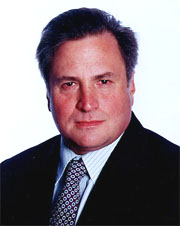 By Dick Morris January 08, 2004
Any candidate who wins Iowa, New Hampshire and South Carolina acquires a political momentum that's hard to stop. But in Dean's case, such early victories will do more than just accelerate his campaign, attracting media attention, money, supporters and votes - in each of these three primaries or caucuses, he stands likely to knock an opponent out of the race. Dick Gephardt can't survive losing to Dean in Iowa. He might feebly attempt a comeback down the road, but he has waged a very weak campaign in the other states and has bet all his marbles on Iowa. John Kerry's misguided campaign will probably come to an end in New Hampshire. With former Gen. Wesley Clark gaining on him, he might even suffer the indignity of coming in third in his next-door state. Kerry's problem, indeed, his epitaph, is that he tried to move to the center before he secured the left. He looked at the field and saw Joe Lieberman, Gephardt and John Edwards as his adversaries. He correctly reasoned that all three men were to his right and then leapt to the fallacious conclusion that he had the left all to himself. But he didn't reckon with Dean outflanking him on the left. So when Kerry voted for the Iraq War, he thought he was moving to the mainstream for the general election when he was really cutting his throat in the primaries. Edwards' campaign never really got going. He can't survive a loss in South Carolina, the state next door (and the place of his birth). Dean is doing well in South Carolina and Al Sharpton is a threat there as well. Little noticed is the Washington, D.C., primary, which comes one week before Iowa's caucuses. As the real first-in-the-nation primary, the D.C. voting will serve to anoint either the Rev or former Sen. Carol Moseley Braun as the black candidate. Sharpton will probably win and the resulting concentration of minority voters may lift him to a win in South Carolina. But whether Dean or Sharpton wins there, Edwards will be out. Then Dean will suddenly face a three-way race for the nomination. The underbrush will have been cleared away and he will face Sen. Lieberman and Clark in the finals. The question for Dean is whether his leftist base can stake him to enough votes to prevail in a three-way field. Against the current crop of nine candidates, he can win by garnering a quarter of the votes in most states. But when the race narrows, he'll need to get 40 percent or more to win in each of the large key states. A fringe candidate can usually get one voter in four. But can he get enough to win once the bar is raised? My bet is that he can - because of the very rules that the Democratic Party leaders put in place to stop somebody like him from winning. Chastened by the almost-victories of Bill Bradley and John McCain in their respective primaries in 2000, the party bosses decided not to risk having their favorite sons overturned by some flaky result in Iowa or New Hampshire. Knowing that a candidate (like Dean) could come out of nowhere and win these two notoriously unpredictable states, the party leaders deliberately front-loaded the nominating process so that the victor of Iowa and New Hampshire would have a hard time garnering the money in time to compete six weeks later in the simultaneous primaries in New York, California, Texas and Ohio. If some out-of-the-mainstream candidate upended their favored campaigns in New Hampshire or Iowa, he would never be able, they felt, to translate his new momentum into dollars in time to buy enough media to influence enough voters to win four big states. By the time he had solicited funds, opened the mail, deposited the checks and bought the media time, the primaries would be almost upon him. Oops. Dean outwitted the leaders. By raising his money early in the process through the Internet and eschewing the limits on his campaign spending that federal matching funds would bring, he already has enough money to compete in the big four states. It is Dean's opponents, struggling for traction after losing Iowa and New Hampshire, who will trouble revving up for the big primaries in early March. While they are still scrounging for funds to get off the ground, convincing donors that they can win, Dean will have pulverized the airwaves - and the Internet -with his message. His momentum will leave them choking in his dust. So the very system rigged by
the bosses to prevent the Democratic Party from being captured
by the extreme left will operate to assure that nobody can stop
them. dmredding@aol.com Dick Morris was an adviser to Bill Clinton for 20 years. Morris is a political consultant, commentator and best selling author. Look for his newest book, "Power Plays" and his new book, "Off With Their Heads - Traitors, Crooks & Obstructionists In American Politics". Distributed by Cagle Cartoons, Inc. to subscribers for publication.
|
||
